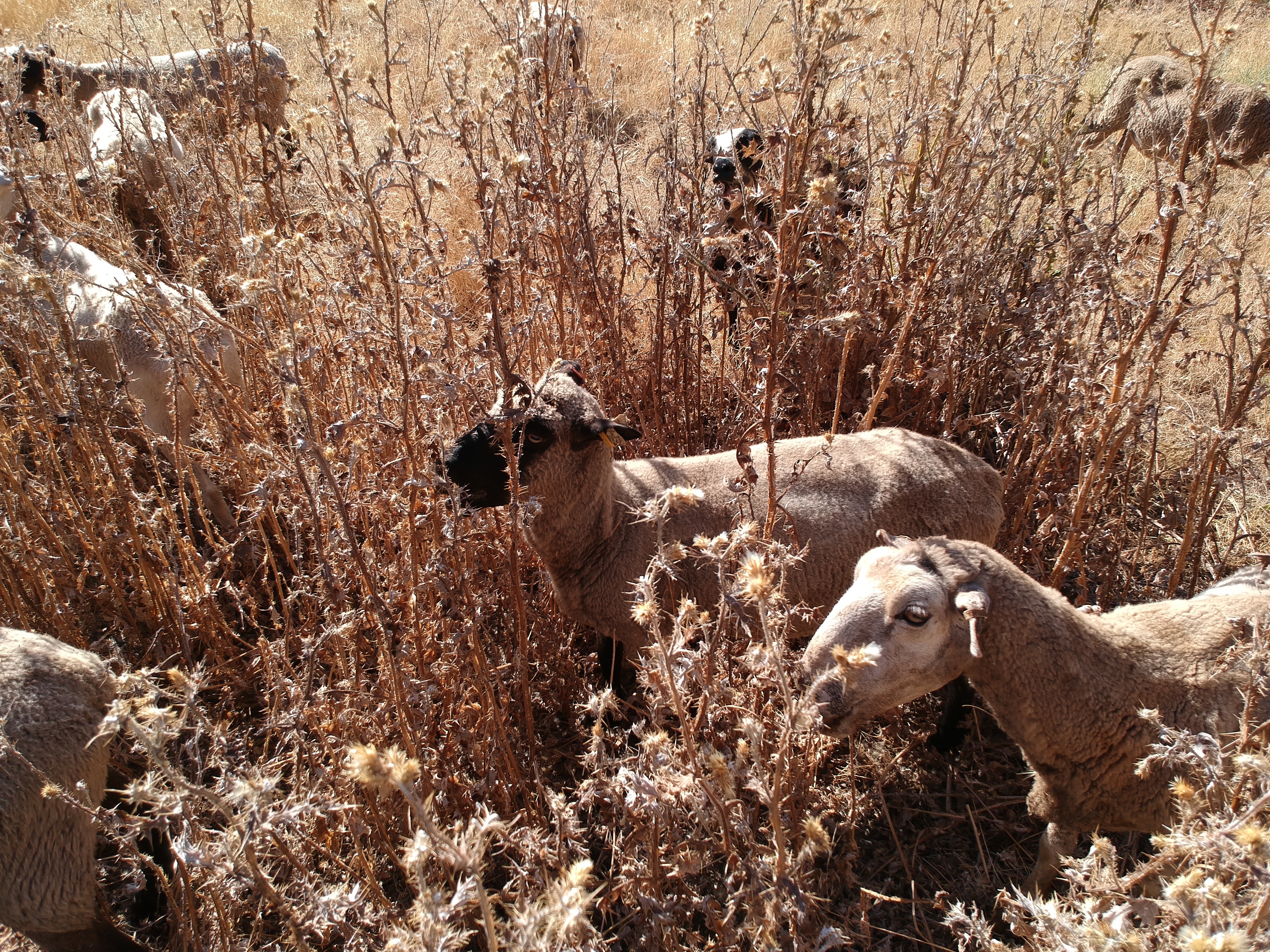Moving on to Summer
Contributed by Dan Macon
In 2019, according to Wikipedia, summer in the Northern Hemisphere will officially begin on June 21. Technically the Summer Solstice is the longest day of the year (as a kid, I always thought this was Christmas Eve). In our sheep operation, however, weaning day marks the end of our spring work – and the beginning of our summer chores.
Weaning day involves separating the lambs that were born in February and March from their mothers. For the most part, the ewes have already cut their lambs off from their milk – the oldest lambs are weighing 65-75 pounds and consuming as much grass as the ewes. On weaning day, we’ll move the ewes onto dry pasture west of Auburn to reduce fire danger in the Blue Oak Ranch community. The lambs we’re keeping (replacement ewe lambs and feeder lambs) will stay on higher quality irrigated pasture. The rest of the lambs will be sold – our pay day comes once a year!

After weaning day, we’ll settle in to our summer routine. My job will be to irrigate the 20+ acres of pasture that will feed our lambs (and later our ewes) until the fall rains germinate the forage on our rangeland pastures. I’ll also manage the grazing on these pastures – building fence, moving sheep, and monitoring grass growth. My partner Roger will manage the ewes. As the grass dries, this will involve providing supplemental nutrition and keeping an eye out for fire. As we’ve all painfully learned in the last several years, California’s iconic golden hill are prone to burn – we’ll put together a fire plan to make sure our sheep are safe during the summer.
Summer chores require diligence and persistence. Every morning before heading into my day job, I head to the ranch to move water. On the days when everything goes well, this job takes about 45 minutes – and I arrive at my office reasonably dry and clean. As with any ranching task, however, unforeseen problems can arise. A sprinkler might be clogged; a pipe might break. On these days, I’ll often have to return home and change clothes. Unlike irrigating fruit trees or vegetables, irrigating our pasture is an everyday task.
Changing water and moving sheep may seem monotonous to non-ranchers. Rather than being bored by the day-in-day-out nature of my work, however, I find that I have grown to appreciate the persistence and dedication required of me as a rancher. I find that the daily responsibility – and the daily “sameness” of my work – makes the gradual changes that come with the revolving seasons even more meaningful for me.

To someone who doesn’t raise livestock, my typical day in March might look much like my typical day in October. I check the sheep, I feed the livestock guardian dogs, I get home close to sundown. To me, though, the days are similar but different. In March, checking the sheep means checking for new lambs. In March, the grass is growing rapidly, which means we move our sheep more often. In June, I move the irrigation water. In June, we sell our lambs and put the ewes back on dry forage. From one day to the next, the jobs are very similar, but our annual production cycle means that the jobs change gradually as we go through the year. This “monotony” also means I appreciate the milestones in our year even more – milestones like turning the rams in with the ewes, tagging the ewes (removing their rump wool) before lambing, lambing itself, shearing, and weaning – even more.
Raising livestock also requires dedication. In our family, the animal chores usually come before we feed ourselves. The running joke is that the sheep only break through the electric fence when we have something else going on – loose sheep mean that we drop everything and put them back in their pasture. If we’re moving ewes with young lambs, the job isn’t done until we’re certain the lambs are mothered up again and nursing. If I check the fence at sundown and find that the battery is dead, I run home for a new battery and return to the pasture before settling in for the night. One of my favorite authors, Ivan Doig, wrote in Dancing at the Rascal Fair, that “To be successful with sheep, even when you’re not thinking about them, you’d better think about them a little.” I’ve certainly found this to be true.
